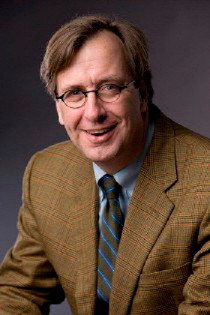PUBLISHER'S LETTER
From the publisher
The argument was doubtless about threats to the status quo when Johannes Gutenberg invented mechanical movable type printing in the 15th century: the new technology would put scribes and makers of wood blocks out of work and bring a decline in aesthetic values. Today the argument is that digital technology is keeping people out of libraries and limiting the purchase of physical collections.
Both arguments were and are clearly incorrect. Gutenberg started the printing revolution that spread learning to the masses; digital technology is revolutionizing research and already has expanded the role of libraries into sources of up-to-the-minute information. As Cornell's Carl A. Kroch University Librarian Anne Kenney says in our cover story on Cornell's "library that never sleeps," digital access doesn't threaten library services or spaces, "it just gives us new avenues to reach users." Indeed, the library's visitors have increased by a million a year over the past half decade, and the physical collection is bigger than ever.
This is just one of the fascinating facts in our cover package on the tsunami of change that has swept over academic libraries, Cornell's in particular: No longer just information repositories, they are now facilitators of research, teaching and inquiry. Of course, our university has a rich history of a progressive library system, including the installation of electricity in 1885, allowing it to become the first library in the nation to stay open more than 12 hours a day.
Enhancing what Librarian Kenney calls "the life of the mind" has become a singular mission for our library staff, whether teaching, collaborating with faculty, or, as a cover story sidebar describes, reaching out to alumni across the country with Library Salons examining a diversity of ideas and topics.
It's appropriate for an issue that examines the role of intellectual inquiry, that Ezra presents updated architectural views of our new humanities building, Klarman Hall, to be built behind and attached to Goldwin Smith Hall. Our clearly stated devotion to the humanities is proof positive that scholarship and creative expression will continue to challenge our faculty and students alike in the years to come.

Thomas W. Bruce
Vice President, University Communications
